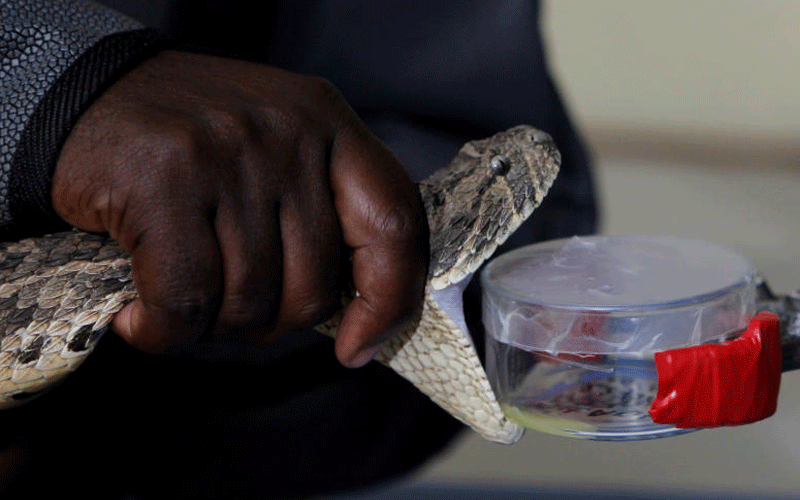Gifts: When giving, it is said it’s the thought that matters…

Harriet James @harriet86jim
In the year 2000, Peter Liech, a tour guide was awarded the top prize for being the most active volunteer by the National Museum of Kenya.
While he was excited because his efforts were recognised, there was one thing that puzzled his mind.
“I was awarded a replica of the skull of homo erectus. As much as I was happy for the award, I really didn’t know what to do with it,” he recalls.
Liech remembers not going for the awards for quite some time because of that.
While he believed in science, in the African culture, a skull represents death, a bad omen that he felt uncomfortable having it around his home.
When he got tired with it, he gave it to his boss who was also spooked by having a skull around, so he kept it in the garage.
“The great thing about the gift is that it gave my boss the idea on how to rename his business, he called it ‘Origin’,” he says
In all cultures, giving gifts shows generosity, appreciativeness and kindness. They also amend or bind social ties.
They are usually a delight to receive— a joy, they bring excitement to the one who receives them.
Because they have sentimental value, gifts reinforce the bond that exists between the giver and the recipient.
The impression that the recipient gets is that the gift giver has them in their mind hence boosting the emotional connection shared.
Do’s and Don’ts
“We are social beings and would like to be thought of as warm and pleasant.
To maintain this, we tend to go out of our way to get gifts, especially for our loved ones, to show our affection towards them.
This creates an attachment effect with the recipient who after a while will feel the need to reciprocate with a gift,” explains psychologist Elmard Reagan.
However, doing this requires thoughtfulness and understanding of cultures. Reagan says it is more than just handing over a gift or buying something for someone.
Avoid giving gifts that are too personal, which will make the recipient feel uncomfortable or remind them of a difficult past.
In addition, one should also observe the season and time as to which to give various gifts.
For instance, giving someone a knife, a pair of scissors or umbrella is a terrible idea as it means an end to a relationship or that you are cutting off something.
It is said that giving shoes too or straw sandals means that the person will be shoeless or they will walk away from you.
Gifting someone a watch or clock means that their time is up and they will soon pass away.
Also giving someone a comb means that the person will have health issues and a black dress or trouser means that the person will forever have sorrow in their life.
It is also said that gifting a couple with a mirror as their wedding gift means that they will have seven unlucky years of sadness.
Conflicting myths
“There is a myth about breaking mirrors, which came about as a result of the belief that the image that you see on the mirror is a projection of the soul.
So, if it breaks, it means that your soul will have an injury. If you do not wish this to the person you love, don’t give it to them or anyone else,” says Reagan
However, Reagan notes there are some gifts, which are seen as a taboo, but in actual sense, are perfect gifts.
For instance, while most people feel that giving money is insensitive, or thoughtless, people actually need money to survive.
Also, people give a wallet as a gift, why not add money in it to bring prosperity?
“If you are giving flowers, always ensure that you get the colour and the symbolism well so as not to give the ones for funerals for a date.
The colour of the wrapping paper may send an unintended message. For instance, many people associate black and gold with funerals,” notes Regan.
Apart from just the gift, there are also laws that govern the art being used. For instance, in the African setup, people believe that a gift should never be given using the left hand as it’s deemed as unclean. Use either the right hand or both hands whenever handing over a gift.
Fine details
“When giving gifts, we tend to imagine how the receiver will feel. We subconsciously create an impression about the kind of person we are. We say much about who we are through the gift,” he notes.
“The type of gift we get someone underscores how well we know them — their taste and choice.
By gifting someone what they like boosts their level of trust in us and consequently a resolute relationship.”
“When to give someone a gift is vital because it reasserts that we have them in our minds. Important dates such as birthdays and anniversaries shouldn’t be ignored.
It’s also important to know the state of your recipient emotionally before delivering your gift.
Some people appreciate gifts when they’re at their lowest, others at their highest state emotionally while for some it doesn’t really matter.
Regardless of the time, knowing when, where and how are key in the matrix of gift giving,” says Reagan in ending.














